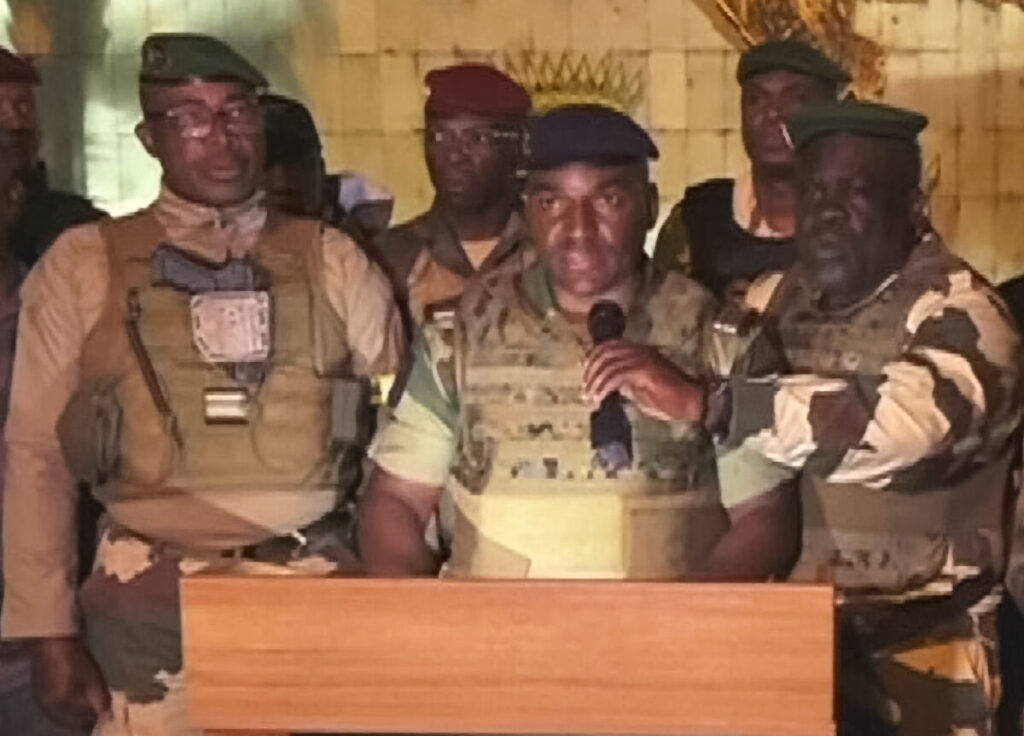Military officers declared they had seized power in Gabon on Wednesday after the Central African state’s election body announced President Ali Bongo’s re-election.
Here is what we know so far:
WHAT HAS HAPPENED IN GABON?
In the early hours of Wednesday, Gabonese military officers appeared on national television and proclaimed they had taken power less than an hour after the election commission said Bongo had won a third term in the presidential election.
The opposition had denounced the Aug. 26 vote as fraudulent, which Bongo’s campaign denied. But a lack of international observers, the suspension of some foreign broadcasts, and the authorities’ decision to cut internet service and impose a nighttime curfew nationwide raised concerns about transparency.
Citing a lack of electoral credibility, the officers announced they had annulled the election results, closed Gabon’s borders until further notice, and dissolved state institutions.
They said they represented all of Gabon’s armed forces and called themselves The Committee of Transition and the Restoration of Institutions.
In a subsequent televised address, the group said they had placed Bongo under house arrest and arrested his son, Noureddin Bongo Valentin, and others for corruption and treason.
WHO IS ALI BONGO AND WHY WAS HE OUSTED?
President Ali Bongo, 64, came to power in a contentious 2009 election following the death of his father Omar Bongo, who had ruled for 42 years.
Ali Bongo’s campaign to preserve oil-producing Gabon’s rainforests and forest elephants, a cornerstone of his rule, initially raised hopes he might usher in change in a region of autocrats.
He won re-election in 2016 but opponents accused him of rigging the vote and brutally quelling protests afterwards.
They also said his family has done little to share the state’s oil and mining wealth with the near third of Gabon’s 2.3 million people who live in poverty.
On his wide-ranging campaign trail ahead of the latest election, Bongo sought to dispel critics’ claims he was unfit to govern due to a stroke in 2018 that required lengthy rehabilitation in Morocco.
WHAT IS NEXT FOR GABON?
If successful, the Gabon coup would end the Bongo family’s 56-year grip on power. It remains unclear how long the transition promised by the military would be or what exactly the officers are planning.
It would be the eighth coup in West and Central Africa since 2020. Military officers have also seized power in Mali, Guinea, Burkina Faso and Chad, and most recently in Niger, erasing democratic gains since the 1990s.
A senior Gabonese officer, Brice Oligui Nguema, told French newspaper Le Monde that generals would meet on Wednesday to decide who would lead the transition.
Footage on national television showed a man in fatigues who appeared to be Nguema being held aloft by soldiers shouting “Oligui president.”
© Reuters
